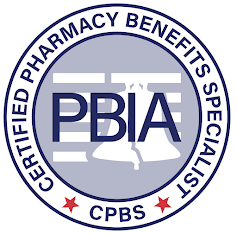Class action against Wells Fargo and other notes from around the interweb:
- Here we go again: Class action against Wells Fargo alleges fiduciary breach and mismanagement of prescription drug plan. Wells Fargo is now the second of many expected and anticipated class action suits against employers for breach of fiduciary duties with respect to their health plans. As previously stated, plaintiff law firms have been investigating several large employers as to whether they are acting in the best interest of their plan participants, exercising care and prudence with respect to the selection of service providers and administration of their plans, and ensuring that plan costs are reasonable. There’s no time better than the present for plan sponsors to ensure they are minimizing risk, following their fiduciary obligations, and stepping up their oversight. Action steps include considering the formation of a health and welfare benefits committee to monitor ERISA benefits, including the selection of service providers, reviewing contract terms, ensuring appropriate value for the price, and monitoring service providers and aggregate costs.
- Understanding the debate over PBMs. As policymakers seek to stem rising drug costs, they have focused closely on the role of Pharmacy Benefit Managers. PBMs contend they help to make prescription drugs more accessible and affordable. However, the industry has evolved in ways that make it difficult to evaluate their actual impact on cost. Critics point to vertical integration, pharmacy steerage, and lack of pricing transparency, and recent media stories have fueled this debate by highlighting cases where a participant can purchase a specific drug for less if they don’t use their prescription drug benefits. Employers are concerned both about prescription drug costs, which are rising faster than other medical plan costs, and about their fiduciary responsibility to members.
- Prescription Rebate Guarantees: Employer Insights. This study sheds light on employers’ perspectives of rebate guarantees, dependency upon rebate dollars, and the role that pharmaceutical rebates or employer benefits consultants play in their pharmacy benefits manager (PBM) selection. The common occurrence of rebate guarantees in the study sample raises concern given that rebate guarantees may obscure employer visibility into the actual net prices of drugs, resulting in formulary inclusion of higher-cost products and higher overall total pharmacy costs. Employers should consider the role of employer benefits consultants in presenting drug contracting options and, ultimately, PBM selection. It is important to keep the employer perspective in mind when considering reforms to the current rebate-centric incentives of pharmacy benefit management.
- FTC Releases Interim Staff Report on Prescription Drug Middlemen. The Federal Trade Commission published an interim report on the prescription drug middleman industry that underscores the impact pharmacy benefit managers (PBMs) have on the accessibility and affordability of prescription drugs. The interim staff report, which is part of an ongoing inquiry launched in 2022 by the FTC, details how increasing vertical integration and concentration has enabled the six largest PBMs to manage nearly 95 percent of all prescriptions filled in the United States. This vertically integrated and concentrated market structure has allowed PBMs to profit at the expense of patients and independent pharmacists, the report details. “The FTC’s interim report lays out how dominant pharmacy benefit managers can hike the cost of drugs—including overcharging patients for cancer drugs,” said FTC Chair Lina M. Khan. “The report also details how PBMs can squeeze independent pharmacies that many Americans—especially those in rural communities—depend on for essential care. The FTC will continue to use all our tools and authorities to scrutinize dominant players across healthcare markets and ensure that Americans can access affordable healthcare.”
